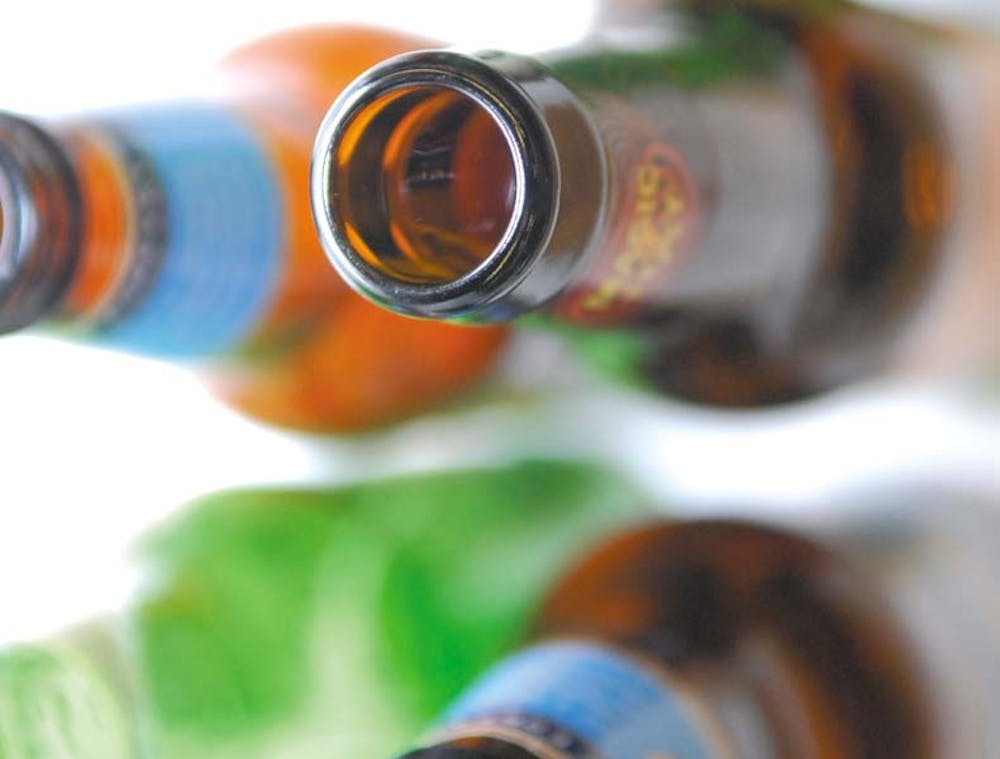
Engineering sophomore Fabian Toro was unhappy with the selection of clubs geared toward Engineering students. So he decided to start a club he knew he would be interested in — a beer brewing club.
“As a [Chemical and Biomolecular Engineering] student, I was trying to find a club that would allow me to put knowledge I had learned in class and apply it to a real life project … Brewing was the answer!” he said in an email.
However, from the outset, he ran into some problems.
Although the legal age to homebrew alcohol in the United States is 18, Toro ran into opposition from the Office of Alcohol and Other Drugs on campus. Their official policy, posted on the OAD website, is that any Penn undergraduate student organization’s events “shall not promote nor describe the availability of alcoholic beverages,” an obvious problem for a brewing club.
Related: Tracking down the history of ancient brews
OAD could not be reached for comment in time of the article.
Ryan Marschang, a Wharton and Engineering senior in the group, got involved with the effort last year as president of Penn’s chapter of the American Institute of Chemical Engineers. AIChE helped Toro in his effort by providing advocacy support and working to raise funding.
“[Alcohol brewing is] a very touchy issue,” Marschang said.
According to Toro, Penn’s peer institutions, like Yale and Harvard universities, allow brewing clubs but require members to be over 21. In the end, OAD told Toro that brewing alcohol would be possible, but only as a faculty initiative involving students.
The group went on, determined, and searched for a faculty member to take up the project. Unable to find one, Toro said, “We decided to shift the focus from beer to other beverages.”
Related: Beer home-brewer speaks at Penn
Fortunately for the group, the list of non-alcoholic drinks one can brew is impressive. Toro lists malt soda, root beer, ginger beer, many herbal beverages – which he said are “not particularly popular or commercialized” – and several craft sodas.
After refocusing, they were able to get approval for their group. They are now beginning to get materials and people together.
“There’s a lot of specialized equipment,” Toro said. He listed off boilers, stove tops, special cleaners, Corney kegs — a device used to carbonate liquids — and other tools.
Still the club will need money to buy the equipment. Kishan Patel, a Wharton sophomore, has been working on budgeting the effort during the past few weeks.
“I could help monetize [the brewing], find some sponsors for it,” Patel said as an example of ways to fund the club.
Related: Alcohol review set to begin next week
Despite their inability to find a faculty who could help them brew beer, the group has gotten attention and advice from faculty and professional brewers. At a career fair, the group discussed the idea with Anheuser-Busch, the company that makes Budweiser beer, and have since stayed in contact with the company’s representatives. Professor Patrick McGovern, famous for his research in ancient beer, has also been corresponding with the group and will act in a liaison role, said Toro.
The group has their first official general body meeting planned for Sept. 24, and they are all excited to recruit new members.
“It depends on how well we outreach to people. But there’s a lot of people here, and I think we’ll do well,” Patel said.
The Daily Pennsylvanian is an independent, student-run newspaper. Please consider making a donation to support the coverage that shapes the University. Your generosity ensures a future of strong journalism at Penn.
DonatePlease note All comments are eligible for publication in The Daily Pennsylvanian.





